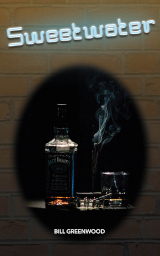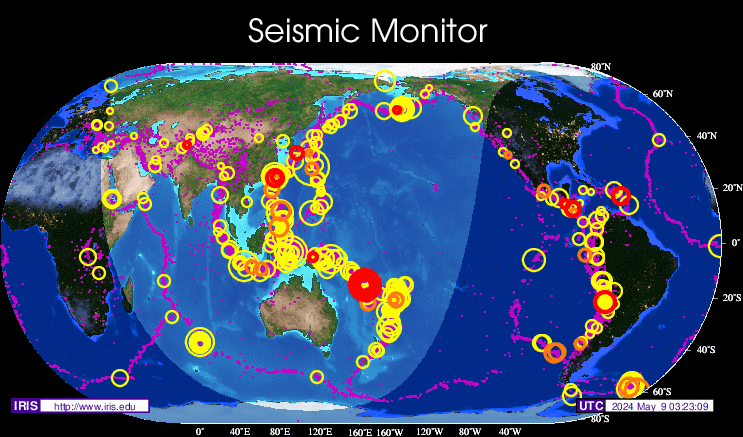Why this blog?
Until this moment I have been forced to listen while media and politicians alike have told me "what Canadians think". In all that time they never once asked.
This is just the voice of an ordinary Canadian yelling back at the radio -
"You don't speak for me."
email Kate
Goes to a private
mailserver in Europe.
I can't answer or use every tip, but all are appreciated!


Katewerk Art
Support SDA
Paypal:
Etransfers:
katewerk(at)sasktel.net
Not a registered charity.
I cannot issue tax receipts
Favourites/Resources
Instapundit
The Federalist
Powerline Blog
Babylon Bee
American Thinker
Legal Insurrection
Mark Steyn
American Greatness
Google Newspaper Archive
Pipeline Online
David Thompson
Podcasts
Steve Bannon's War Room
Scott Adams
Dark Horse
Michael Malice
Timcast
@Social
@Andy Ngo
@Cernovich
@Jack Posobeic
@IanMilesCheong
@AlinaChan
@YuriDeigin
@GlenGreenwald
@MattTaibbi
Support Our Advertisers

Sweetwater

Polar Bear Evolution

Email the Author

Pilgrim's Progress

How Not To Become A Millenial

Trump The Establishment
Wind Rain Temp

Seismic Map

What They Say About SDA
"Smalldeadanimals doesn't speak for the people of Saskatchewan" - Former Sask Premier Lorne Calvert
"I got so much traffic after your post my web host asked me to buy a larger traffic allowance." - Dr.Ross McKitrick
Holy hell, woman. When you send someone traffic, you send someone TRAFFIC.My hosting provider thought I was being DDoSed. - Sean McCormick
"The New York Times link to me yesterday [...] generated one-fifth of the traffic I normally get from a link from Small Dead Animals." - Kathy Shaidle
"You may be a nasty right winger, but you're not nasty all the time!" - Warren Kinsella
"Go back to collecting your welfare livelihood. - "Michael E. Zilkowsky
Throughout history many a city has been held hostage by a foreign army.. What makes this interesting is they are not foreign.. You have two options.. Pay them off to leave or run them off on the tip of a bayonet..
Until then, enjoy your house guests..
Good allusion!
On the flip side, by all means, pay the Danesgeld…
I’ve read many stories about the development of the atomic bomb, so I won’t be going to see a Hollywood version.
Kind of surprised they don’t have an alphabet people cast. But maybe they don’t want to have alphabet people portraying the destroyer of worlds.
No … but they can celebrate Communists, and admirers of The Soviet Union. Yeah … someone in America outa kept an eye on this potential traitor to America.
Someone was whining that the first woman they saw in the movie was 14 minutes in and it was a sex scene…
I’m sure you could if you looked hard enough find a closeted gay somewhere in the thousands of people involved…
“Now I am become death, the destroyer of worlds.”
The first time I heard this quote was from the movie The Hunt for Red October.
https://www.youtube.com/watch?v=CtSyRrJS5JM
The BBC series The World at War narrated by Laurence Olivier is not to be missed. You will not be surprised (since I spent my early childhood in London during WW2) that I have viewed this series many, many times. In fact, the repeated viewings probably had the greatest influence on my views about the nature of war.
Re: The ethical issues surrounding the use of the atomic bomb. There is no room in war for half way measures. The supreme irony is that the war fought with the least mercy is, ultimately, the most merciful war.
Harry Truman after meeting Oppenheimer:
“Never bring that f*cking cretin in here again. He didn’t drop those bombs. I did. That kind of weepiness makes me sick.”
Agreed, dropping the bombs was horrible, and devastating to the cities so bombed. But there is a good argument that Truman’s use of the A-bombs not only shortened the war but seriously lessened the casualties on both sides. The Japanese army was prepared to fight to the death of the last civilian (check out Gail Tsukiyama’s book “The Street of a Thousand Blossoms” and also to murder any POWs ( see Sir Laurens van der Post’s book “The Night of the New Moon”) as the Japanese soldiers retreated northward. Only the shock from the dropping of the two bombs allowed the Emperor to step in, override his generals, and sue for peace.
Unfortunately, the dropping of the a-bombs enabled the Japanese to claim serious victimhood and – thus – to escape censure for their incursions into China and Korea. Wayson Choy, in his novel “The Jade Peony”, explores life for Chinese in Vancouver in the 1930s but also mentions relations with the Japanese who lived north of Hastings Street. Said relations were seriously affected by news from China of the Japanese incursions and – particularly – the “rape of Nanjing”.
The Allies already knew there was no alternative to the atomic bomb. Saipan, Iwo Jima and Okinawa had already demonstrated that a conventional invaision of Japan would cost at least 100,000 Allied dead, along with several million Japanese military and civilian casualties. There was also very serious doubt that the United States army would be capable of undertaking a conventional invasion and its losses after what it had endured in Europe demolishing Nazi Germany.
In the end, Hiroshima and Nagasaki, saved millions of live which would otherwise have been lost. The damage and fatalities in those two cities were relatively small given what the United States had already done to Japan in the fire bombings on Japanese cities starting in March, 1945.
Your comment about the willingness of the Japanese military regime to fight to the bitter end is entirely right. They had to be confronted with a weapon for which there was no defense. IN the end, Truman’s decision was based on the fact that the United States had no choice whatsoever.
Curtis LeMay didn’t think the A-bombs were necessary as he wanted to bring all the heavy bombers from Europe into the Japanese theatre and Napalm every city, town and village 24/7. The civilian casualties would have been horrendous.
Agreed. LeMay was as bad as the genocidal lunatics of National Socialism. Truman was much wiser than either LeMay or the moron Douglas MacArthur.
@cgh – “They had to be confronted with a weapon for which there was no defense.”
How times change, today the new “they”, propagated by the likes of the CBC and the globalist WEF believe that we can defend against thousands of nukes multiple times deadlier delivered with systems exponentially more sophisticated than a B52 bomber.
“Your comment about the willingness of the Japanese military regime to fight to the bitter end is entirely right. They had to be confronted with a weapon for which there was no defense.”
As if the Kamikaze suicide pilots weren’t enough, they also trained school children to use sharp bamboo spears to kill Allied troops in the event of a land invasion, as well as conscripting them to work in factories building war material.
Dropping the bomb was the right choice, absolutely.
Wayson Choy was my English instructor at Humber College in the 80’s.
Anyone still debating the use of the atomic bombs to end WWII is an idiot unaware of the facts on the ground. Ending the war any other way would have killed and injured millions more people on both sides.
+++Thomas, it was not a complex equation.
The idea that the bombs shouldn’t have been used on cities … with people living in high density is just stupid. Both cities were arms manufacturing centers … which were located in … cities. Sheesh … all American ships and arms were manufactured in cities too. I’m sorry for the “civilians” … but virtually everyone living in those cities worked in the war effort. And … Japan was WARNED to surrender … or something dreadful would happen to their country.
https://www.pbs.org/wgbh/americanexperience/features/truman-leaflets/
Now, as I’ve heard it told, the Japanese had begun to realize that the war was lost and hoped to be able to negotiate with the U.S. In that sense, the bomb was, theoretically, not necessary.
But the problem was not in theory, but in what actually happened. The Japanese decided to approach the US through America’s ally and Japan’s coolly friendly neighbour, Stalin. Which really should have been the sensible thing to do, but Stalin had already committed himself to entering the war against Japan, and more seriously, had sold himself on the benefits of doing so. He saw no reason to spoil his own party and gave encouraging signs to Japan while concealing the approach from the Americans. The Japanese thought the Americans were set on war to the end, when in fact they were oblivious to the fact that they might have a choice.
At a crucial point there was a widely publicised appeal (I forget from whom exactly) to Japan to consider stating peace terms. The Japanese gave a statement that they could not comment in detail immediately, and apparently this was mistranslated (by whom and in what circumstances my sources do not tell me, though it seems one of the great blunders of history) as saying they regarded the appeal with contempt. This was all the Americans needed to abandon all thought of settling with Japan.
So, if the Americans had known that the Japanese were open to settlement, and if the attempts to settle had succeeded, then the bomb was unnecessary. A couple of big if’s, but they are the entire basis for the idea that the US is somehow guilty here. But people cling to that idea, if only because it takes the attention off Comrade Stalin.
Why Aren’t Hiroshima and Nagasaki War Crimes?
On the one hand, we’re told that the intentional targeting of civilians in wartime is a war crime. On the other hand, we’re told that the intentional targeting of Hiroshima and Nagasaki with nuclear bombs was not a war crime.
Which is it?
https://www.fff.org/2016/05/12/arent-hiroshima-nagasaki-war-crimes/